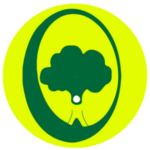A 2015 Tree Inventory revealed nearly 4,000 empty tree pits in the small (3.8 sq. mile) the City of Newburgh. Through community engagement, surveys, and street canvassing the Newburgh Environmental Justice Fellows honed in on areas in each of our City’s 4 wards in urgent need of trees. Each chosen block lacked trees; two full blocks had no street trees or even tree pits at all, requiring heavy work to remove concrete and asphalt and excavate new tree pits. The lack of trees in these neighborhoods resulted in no shade or windbreaks, sweltering summer conditions, and a general sense of neglect and deterioration.
We raised public awareness through surveys and handouts, social and traditional media, presentations to City Council and other organizations, and a community event celebrating the Fellowship program and tree planting.
Engaging communities has sparked new understanding and demand for street trees. The trees have already transformed the feel of four urban blocks, increased community cohesion, and inspire residents to care for the trees.
Now and into the future, these trees will help address several key environmental, social, and public health issues. Two locations are purely residential areas, the other two are mixed commercial and residential blocks.
Some of the benefits include reduced urban heat island effect, as well as enhanced stormwater mitigation. Filtration of air particulates will help reduce disproportionately high rates of asthma and other respiratory illnesses in our City. Uptake of water and runoff will help keep pollution from reaching our beautiful Hudson River. Importantly, the trees bring together people committed to making the streets of Newburgh cleaner and safer for everyone in our community, sending needed signals that all areas of the City deserve adequate tree canopy.


